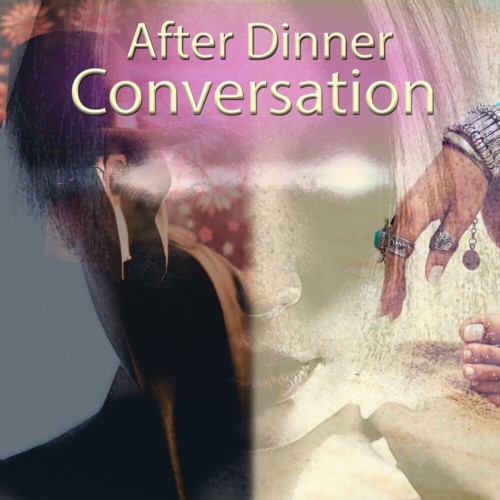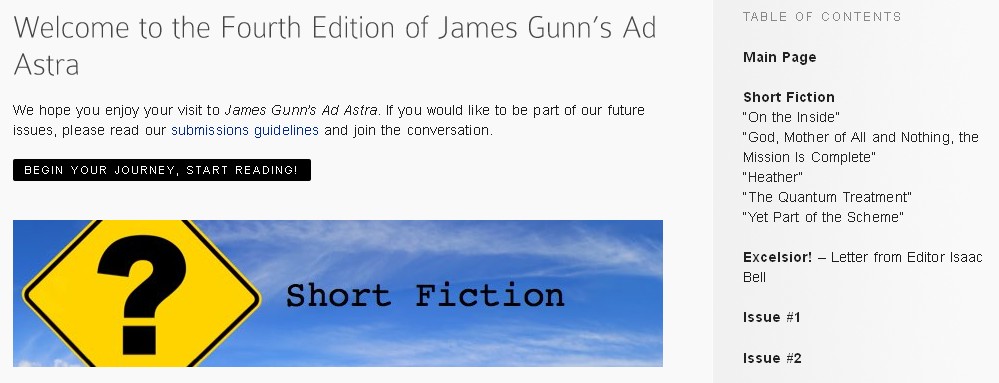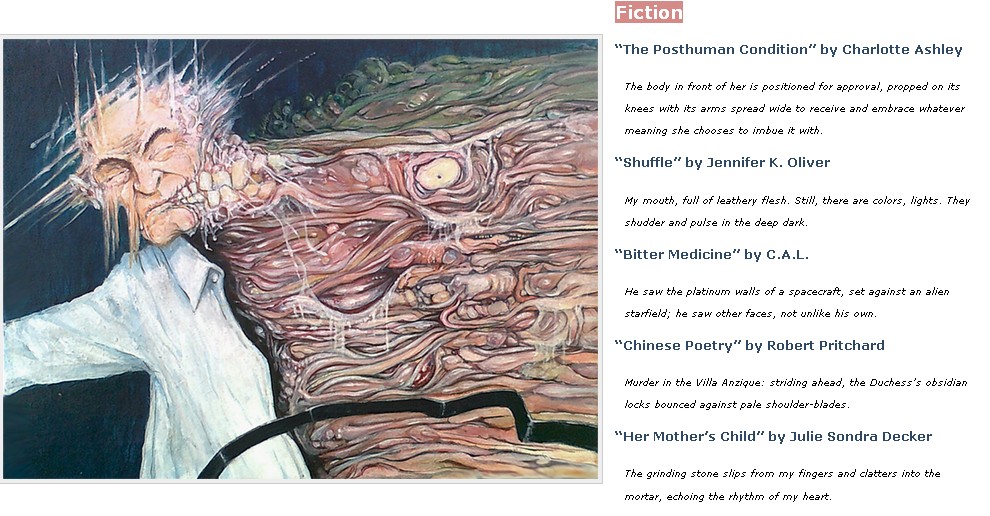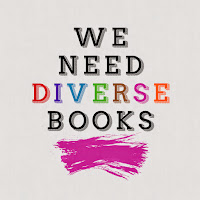Here’s something I’ve been giving a lot of thought to: writing about characters from marginalized groups.
With the (somewhat) recent push for more diverse literature (see We Need Diverse Books and some great interviews at DiversifYA), it’s clear that the landscape of publishing is tilting toward a desire to include both characters from underrepresented backgrounds and authors who are of those descriptions themselves (regardless of whether the characters and stories they publish feature narratives that mirror their own lives). But I have also seen, almost across the board, a message to “majority” authors: don’t be afraid to write The Other, and don’t always default to writing People Like You (because it is NOT a neutral choice to do so) . . . but if you try to do it, you have a responsibility to do the research and get it right to the best of your ability.
I’m thinking about this now because I wrote a story about a trans girl a few years ago and I recently started submitting it to magazines, and it just got accepted.
Why do I, a cis woman, want to write about a trans girl? Especially since the story is almost entirely about her quest to be recognized as a girl by her alternate-world gender-segregated culture?
I mean, that’s not my struggle. That’s not my narrative. Why was I led to “hijack” that story as my own for purposes of fantasy coming-of-age literature and use it to forward my publishing career?
That’s obviously not how I was thinking of what I was doing, but I’m sure if someone wanted to ask leading questions about my motivation, they could sound like that.
My reason, I think, is that I have a fair number of trans people in my life and in my community; as an asexual person who’s active in asexuality awareness activism, I see tons of interaction with and intersection with trans folks, some of whom are also asexual. And what I’ve seen is that there isn’t much science fiction and fantasy (or much literature at all) that puts trans people at the center of their stories. They’re almost always a symbol of something, or a learning experience for someone else, or a background character, or (worse) a joke. When I wrote my story, I was (and still am) dedicated to hearing more trans people talk about their experiences, and I have both sought those viewpoints out (in literature and in blogs/videos) and listened to my friends talk. These were the people and messages I was surrounding myself with, so it seemed natural that out of the more than two dozen short stories I’ve written, a trans person would pop up in one of them.

Old sketch of the protagonist at age 8
But I do worry, as a cis person who has written a trans girl’s story, that when my short story is published, it may let people down or disappoint them. I don’t worry about this the same way I do when, say, I write about male characters as a female author, because male people are not generally a group that is oppressed for their maleness (unless it is in association with another identity, like how black maleness is processed as more dangerous than white maleness in so many of these tragic stories in the news lately). I worry about doing it right in the case of writing a trans girl because the last thing trans people need is a cis person repackaging their struggles and getting all the nuances wrong.However, I do know that some readers will automatically turn their noses up at anything that doesn’t mirror
their experience and tend to have outraged reactions. I even had this with my asexuality book in the editing stages even though I was
writing as an asexual person; one of my readers in particular wrote me a heated letter accusing me of presenting my own experience as the only true asexual experience because my introduction (the only personal content in the book) gave some of my background, and one of my later readers implied that I was “appropriating” language (from my own community?) because I just wanted to make money. You absolutely can do everything right and still have people go into reading your work absolutely certain that you must have screwed it up. But because I am far more concerned with actually doing a good job than I am with getting my Feelings Hurt over people thinking I suck, I would rather listen to even the criticisms I find uncharitable and see if there’s anything I can learn to make my work better.
I don’t know if people are going to read my story about a trans girl and get mad that I as a cis person want to tell a trans person’s story (especially since her transness is so central to the story), but I do hope they understand I am not presenting her experience as universal. (Especially since she lives in an alternate world where there’s elemental magic.) Everything she sees and feels in association with her trans experience is something I’ve seen expressed or explicitly stated by a trans person more than once, and the traits and presentations I’ve chosen for my character are kind of a mixture of typical and less typical.
Here is a weird little self-analysis of elements of my story divided by how common they are in stories about trans people.
Pretty typical:
- The protagonist, Lihill, was identified as male at birth based on genitals, but knew from early childhood that she had a feminine gender identity.
- Lihill prefers to play with girls and does very typical “girly” things like playing house, playing with dolls, enjoying cooking and sewing, and liking hair accessories.
- Lihill feels very strongly about having her hair long.
- Her father is aggressive and many of his appearances in the story involve him shaming Lihill for her tendencies. He’s not portrayed as a nuanced character; he’s an uncomplicated, blunt man with strict ideas about gender.
- Her father continues to misgender her even after her identity is public and established. Her grandmother makes reference to how she “used to be a boy.” Her sister expresses that it’s weird to not have a brother anymore.
- Her mother misunderstands her identity, believing she just doesn’t want to be a “tough guy” like her dad rather than the reality that she isn’t a guy at all.
- She doesn’t fight the binary her society is divided into; she just wants to be sorted into the other side.
- While thinking about things she hates about her life, she does once wonder whether she actually hates herself.
- She gets bullied at her school (though it is based on a misconception that she is making the other kids in her class look bad by association rather than directly because she said she wanted to go to the girls’ school).
- She’s terrified of maturation because she doesn’t want to get a beard.
- There’s no specific indication of what her sexual orientation is, but because of a couple places where she seems really disturbed at the idea of having a wife, she seems to assume she is straight.
More nuanced/less typical:
- She does not try to change her name (“Lihill” is a masculine name in her alternate world culture) and doesn’t have a “secret” name for her girl identity.
- She never expresses that she hates her body.
- She doesn’t like the “born in the wrong body” idea–it just doesn’t sit right with her.
- She actively enjoys some of the things her culture tells her are masculine, like climbing trees. She also gets in a fist-fight at one point and feels like she did pretty well considering she was outnumbered.
- When presented with the idea that she might want to help other trans people once she finds her own way, she admits to herself that she doesn’t want to be “inspirational”–she just wants to be left alone to be a girl.
- The story’s ending suggests she will continue to have a difficult life and that being read as a girl will become more difficult as she gets older. (There is no medical transition available.)
- Every ally Lihill has, no matter how sympathetic, misunderstands at least one thing about her and makes mistakes; she has no one perfect supporter.
- Lihill is not automatically a natural at everything feminine she tries to do, and she is actually good at some masculine things she is assigned to do.
- Apparently in her society the possibility of a child being born intersex is more widely accepted and acknowledged than the possibility of a child being transgender.
- Lihill doesn’t buck the system consistently right from the beginning; she goes through a pretty long phase of survival-oriented going with the flow while becoming more depressed about it.
- Though she does say she can’t picture herself even having a future sometimes, she doesn’t explicitly consider suicide or self-harm. (“I’d rather be dead than the wrong gender” is certainly something some trans people think about, but it didn’t fit this character at all–her idealism and desire for survival was too strong for her thoughts to veer that way.)
- Instead of there being one “male” set of ways and one “female” set of ways, there are actually four in this society, associated with elements. Two of the elements, Fire and Water, are the extremes of masculinity and femininity (respectively), and Air and Earth are the center-masculine and center-feminine (respectively) elements. Though there’s no neutral in the society, they do recognize gradations. (However, Lihill actually identifies as the “most feminine” element; she doesn’t consider herself an “in between” or “middle” identity.)
As an author who thinks it’s important to write about those with marginalized identities, I consciously chose to avoid some tropes while incorporating some very common trans narratives, and I was aiming for a good balance of both (rejecting some overdone “tragic trans person” elements while adopting certain bits that many many trans people whose stories I’ve read have described as part of their lives). I agree with some others that it’s very important that authors don’t consider ourselves restricted to writing only viewpoints we’re personally living or have lived. We do need to step out of our comfort zones and consider presenting characters with minority or marginalized identities as worthy protagonists with stories that aren’t just “for” reading by those with the same identities. We need stories by those with marginalized identities too, and we need to make room for them since they are guaranteed to have perspectives that will be valuable and probably new to those who don’t have their experience. But I think it would be wrong to say only trans authors can/should write trans characters, and those authors who attempt it without personal experience simply need to do their best to present it responsibly and sensitively. I hope my story has done that.
Very few of my stories involve autobiographical viewpoints. In my short stories, I have only ever written one asexual aromantic protagonist (and she’s in a queerplatonic partnership, unlike me). That one’s in consideration by a magazine right now and we’ll see if it hits. This story about a trans girl just got accepted and will be published soon. My other two stories that have found success have a protagonist whose gender is not revealed (with a focus character who is agoraphobic), and a protagonist whose orientation is probably bisexual–maybe homosexual demi-heterosexual would be more specific? (with a focus character who is lesbian).
I also have a fair number of male characters and romantic characters and characters who have beliefs I don’t share and people far younger or older than I am and characters who are married or engaged or are parents. Some of those identities didn’t require much “research” because there are so many presentations of them in our society that any one I choose will probably be pretty close to accurate and won’t reflect on the group as a whole as a rare representation of those identities. And some of them did require more reading and checking for understanding with readers who have lived those experiences. It depends.
But I do want to say for the record that I don’t write characters with diverse backgrounds because I’m trying to do the right thing for diversity in a trend, or because I feel like it’s my cis able-bodied neurotypical white girl responsibility to champion these voices in mainstream venues, or because I have a weird outsider’s/ally’s fascination with any one of them. It’s because I know people with these identities who are part of my daily life and whom I love, and because they are part of the fabric of my reality, it naturally occurs to me sometimes that my characters might be like them. Some of my decisions about how to frame my characters have been deliberate and some have just evolved from how I understand the people in my life and in my communities. However, at the end of the day, characters are their own people, and they are never explicitly based on people I know. Experiences my friends and acquaintances have moving through the world with less common and marginalized identities do help inform my understandings of their challenges and triumphs, but I don’t outright appropriate them to tell some kind of hijacked, oversimplified, distorted amalgam of their stories. I am still telling the story of a fictional character every time I write something like this.
But I know ignorance can cause good intentions to do more harm than good sometimes, and it’s hard to know what you’re ignorant about. I guess what I’m saying by expressing my anxiety about this is that I acknowledge that I’m not perfect, and that my story may not be perfect, and that I understand why some trans people can be wary of cis people writing trans characters, and that I know better than to guarantee that my story isn’t one of the bad ones. I also think the story legitimately isn’t about much beyond an “issue story” of my character fighting to be recognized as her gender, though I do think we need explicit “issue stories” as well as stories in which characters are just incidentally trans. I hope it’s valuable to readers, or that it at least entertains and does not actively damage.
I guess I’m probably overthinking the importance of this, but as I’ve said before, some of us are our own worst critics.









